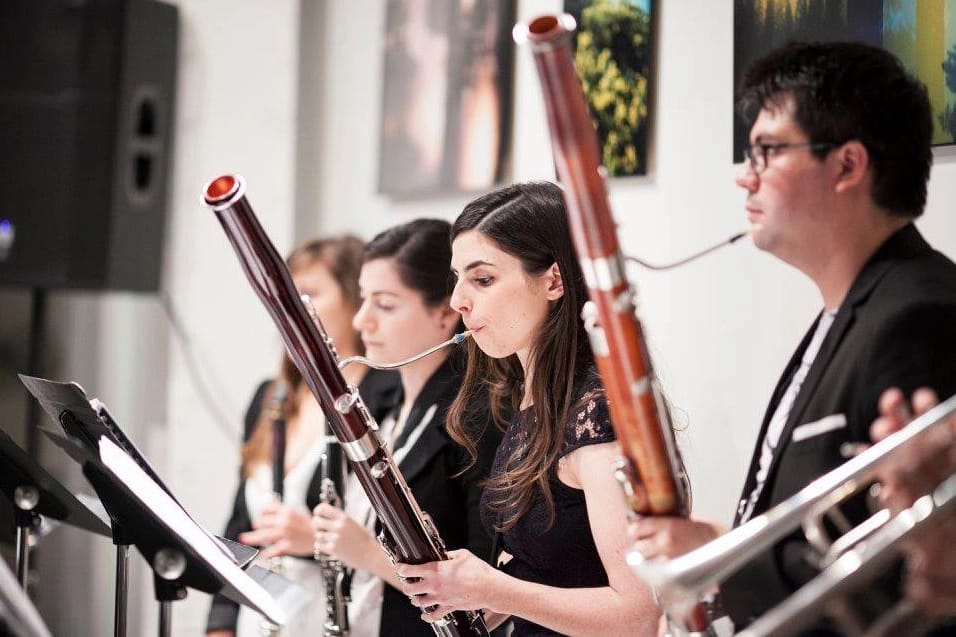
articles / Pop Culture
The Perks of a Collaborative Chamber Orchestra
 The collaborative chamber orchestra called One Found Sound continues its fourth season with a concert this Friday evening, of music by Enescu, Kodaly, and Copland. The ensemble performs without a conductor, and makes all its decisions through consensus – clarinetist Sarah Bonomo is one of the founders, and says that one perk of the way they’re organized is that they get to lobby for, and play music that’s important to them.
The collaborative chamber orchestra called One Found Sound continues its fourth season with a concert this Friday evening, of music by Enescu, Kodaly, and Copland. The ensemble performs without a conductor, and makes all its decisions through consensus – clarinetist Sarah Bonomo is one of the founders, and says that one perk of the way they’re organized is that they get to lobby for, and play music that’s important to them.
There’s more information about the concert at the One Found Sound website.
“Everybody emails in suggestions of pieces, and then we have a little listening party, and then everyone kind of raises their hands, and then I tally the votes,” Bonomo explains. The Copland work called Quiet City will feature Jesse Barrett on English horn, and Brad Hogarth on trumpet. “I feel very lucky as a trumpet player. We don’t often get pieces that are this special.” The piece began as incidental music for a play by Irwin Shaw, and the final standalone work maintains the relationship between the two instruments that reflects the roles of two brothers in the play. The protagonist tries to hide his Judaism. Jesse Barret says: “He marries a woman, and takes her Anglicized name, but then throughout there’s this heaviness that he carries, and a sadness. And even though he’s achieving financial success, he hears the trumpet, which is his brother playing. And that’s supposed to be the voice of his conscience calling back. So it’s really very nostalgic, and very powerful, and very sad.” And Sarah Bonomo was pleased for the choice of Kodaly’s Dances of Galanta both because of its clarinet cadenza, as well as her family background. “I am Hungarian, and so the town where I’m from is actually where Kodaly was from, so that piece feels really personal to me. It’s extremely Hungarian in nature. It defines the rich Hungarian culture. And so for me it’s more than a joy to be able to perform it, because I don’t think… when does anybody ever perform this piece?”
